His childhood passed in an Afghan village, teenage years went by in Artsakh, and youth unfolded in Iraq… The map of Vigen Tatintsyan’s life is crowded with red pins marking the tense days of warfare and feats of an army doctor.
He was born to a military family in Kushka, a borderline village in Afghanistan. His father, Arno Tatintsyan, was a regular officer in the Soviet Army. Since tender age Vigen was inspired to follow resolutely the steps of a father he always saw clad in the military uniform.
A childhood dream and the son of an Artsakh Hero
“First I wanted to be an officer like my father, Arno, but my mother hoped I would find an occupation in medicine. Her tears convinced me and eventually, I dedicated the biggest part of my life to military medical service.
My father was serving in the missile troops and artillery of the 7th Guard Army of the Transcaucasian Military District, when fighting broke out in Artsakh. He came to Armenia and joined the newly created state committee on defense, where he served as the chief military expert. He went to combat in 1991.”
“My father founded the first missile battery in August 1992, when I was 22 years old. I had the honor to fight beside him several times, although he would try to send my away, saying, “I’m fighting so you don’t have to!”
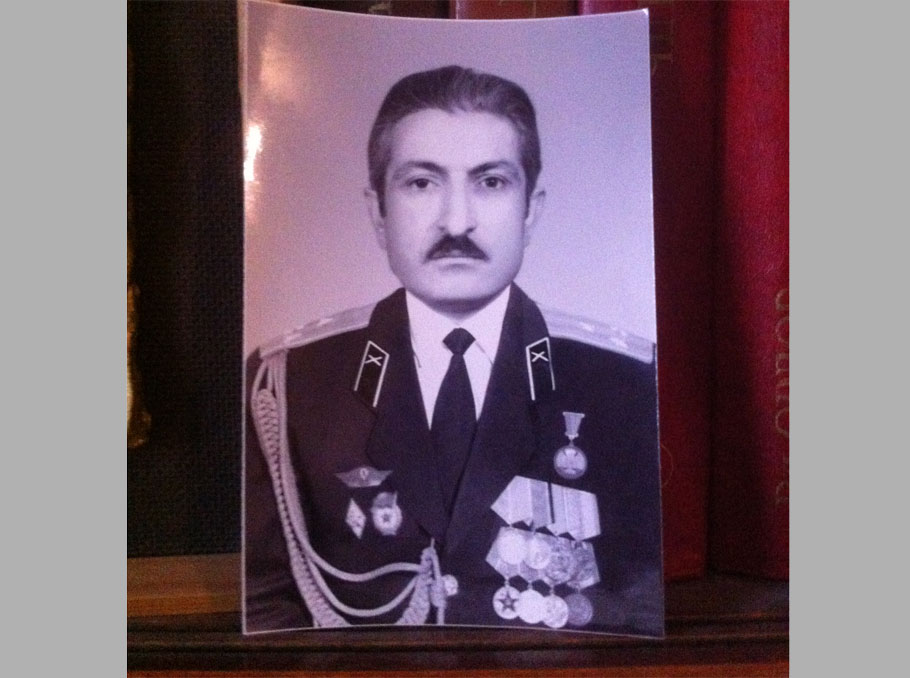 Arno Tatintsyan
Arno Tatintsyan Photo: personal archive
I remember the first detachments and conscripts of the Armenian army. It was nighttime. We made a stop and stepped off the road, surrounded by the mountains. I was wearing the uniform too. I got out of the ZiL (military vehicle – Mediamax) to walk a little and I saw soldiers everywhere, some of them asleep. I was pacing by myself as I heard a soldier ask me:
“Excuse me, are there any bears around?”
“Sleep tight, no bears here,” I replied.
It was so funny. I thought to myself, “These boys will be fighting a tough war in two days…”
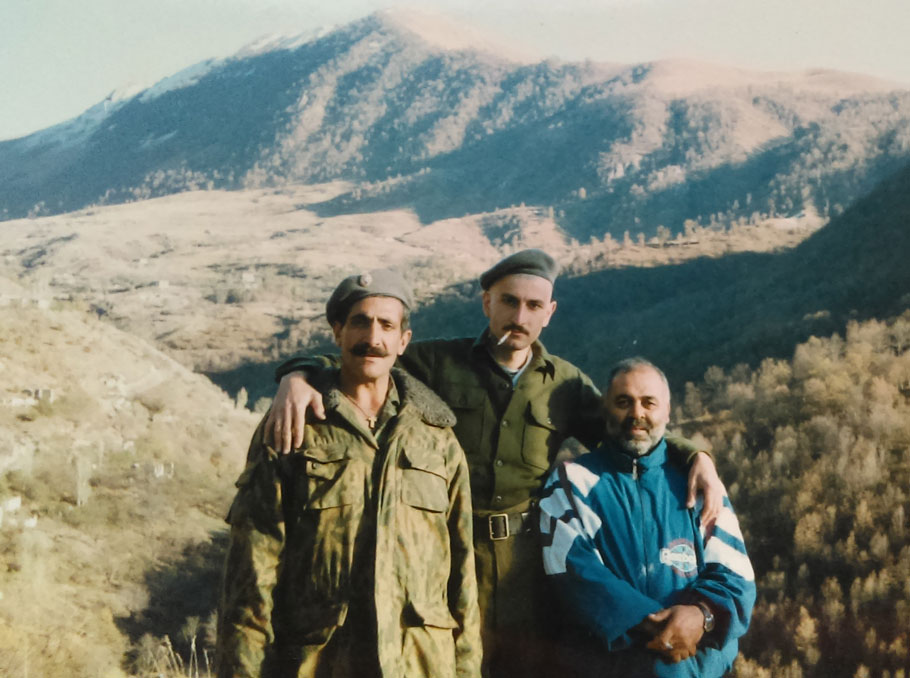 Vigen Tatintsyan with the vets from the Special Forces Regiment
Vigen Tatintsyan with the vets from the Special Forces Regiment Photo: personal archive
Unfinished business of the father and the volunteer army doctor’s return to Artsakh
“My father, head of staff of the missile forces and artillery, Colonel Arno Tatitsyan was killed in combat in 1992. After his death, when I already finished my studies, I got a notice from the military commissariat that they needed military doctors. I packed and went to the commissariat of Charbakh.
People recognized me by my surname and my father’s name. The head of the conscription commission approached and said I couldn’t be there, as servicemen’s families are free from conscription.
I submitted an application and asked to take me in as a volunteer. That is how I got into the army and went to Karvachar.
I joined the 4th special motor rifle regiment in the evening. Our commander was Gagik Melkonyan, a wonderful person and officer. We had a great regiment overall, I am proud to have served there. Our positions were in highland, in the Omar mountain pass. The temperature dropped to -30° C in the winter and conditions were harsh, but we were a strong, united combat team. To be honest, the best years of my life passed in Karvachar.”
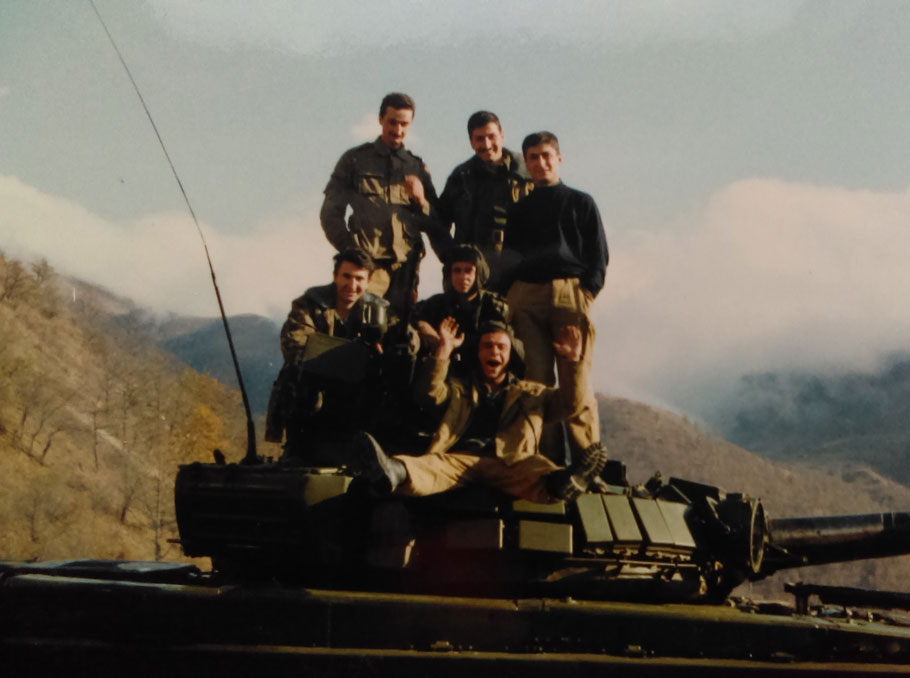 Vigen Tatintsyan with members of the tank company
Vigen Tatintsyan with members of the tank companyPhoto: personal archive
“We had some very difficult times. Often soldiers would get wounded by mine explosions or sniper fire, but we had so little of necessary medical equipment. When I arrived at the aid post, we only had veterinary pain medication or simple metamizole and benadryl, and individual first-aid packs.
One soldier got wounded in lower limbs and was bleeding heavily. Imagine: we were riding in an Ural, it was winter, frozen emptiness around us… We arrived at the post, the soldier was screaming and rocking from pain, his blood pressure was dropping. There were no drugs at the post, but I always carried some with me. Sometimes, at my own risk, I used drugs we were not allowed to prescribe outside the hospital.”
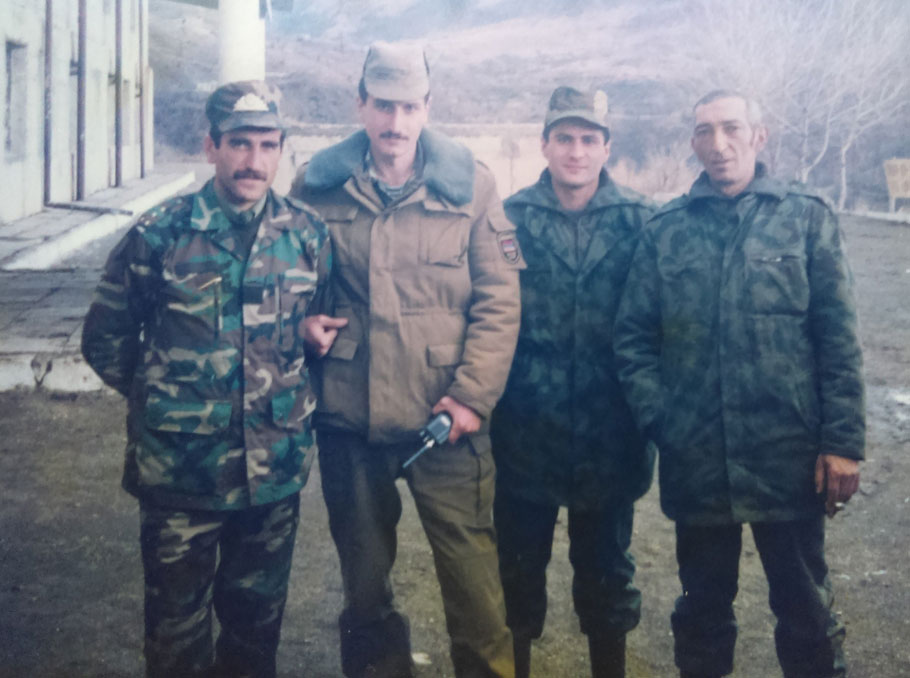 Vigen Tatintsyan in Artsakh
Vigen Tatintsyan in Artsakh Photo: personal archive
“I had to inject a prohibited drug to that wounded soldier. Hurled him in the truck and put him on the drip. Shortly, he was on his feet, singing something… Such was the drug’s effect, but we saved his life.
Another time I saved an infirm soldier, and Vazgen Sargyan (late Minister of Defense) awarded me for that.”
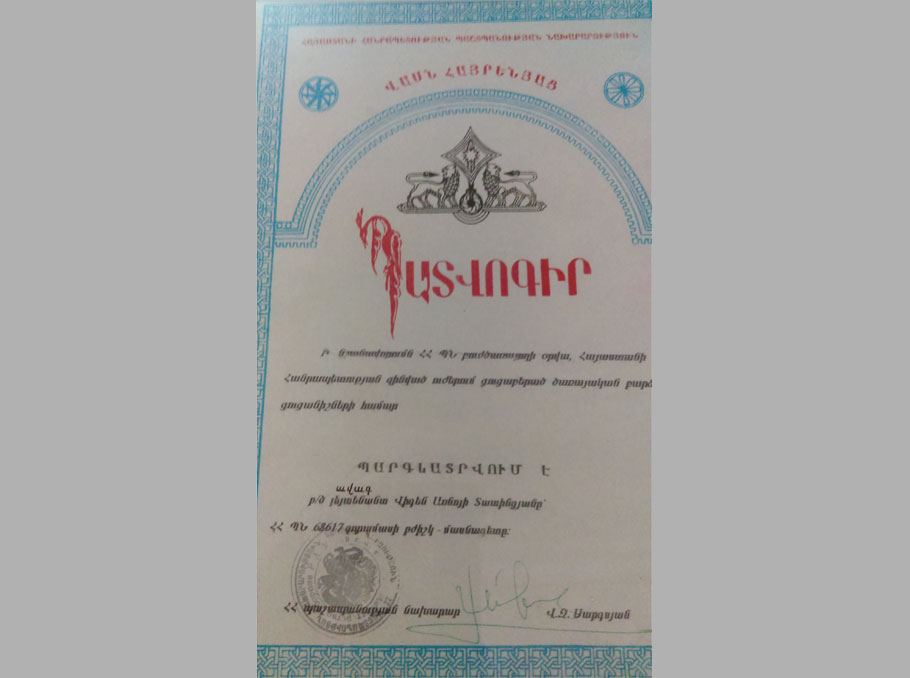 Vigen Tatintsyan’s Certificate of Honor
Vigen Tatintsyan’s Certificate of Honor Photo: personal archive
“I have plenty of memories from Karvachar. Sometimes I write them down. Perhaps, one day someone will want to publish my notes.”
Life after war and the start of peacekeeping mission
“I returned from Karvachar in 1995. At that time I grew very interested in alternative medicine, attended international courses. I worked in that area for some time.
But, as they say, you can’t trick your nature. I knew the role of a civilian doctor was not for me. In 2001, when Armenia announced foundation of a peacekeeping unit, I threw myself in there at once, like an old war-horse at the sound of the bugle call. I passed the tests and restored my place in the armed forces. First, it was just a battalion of 10-15 people, which eventually became a foundation for a peacekeeping brigade.”
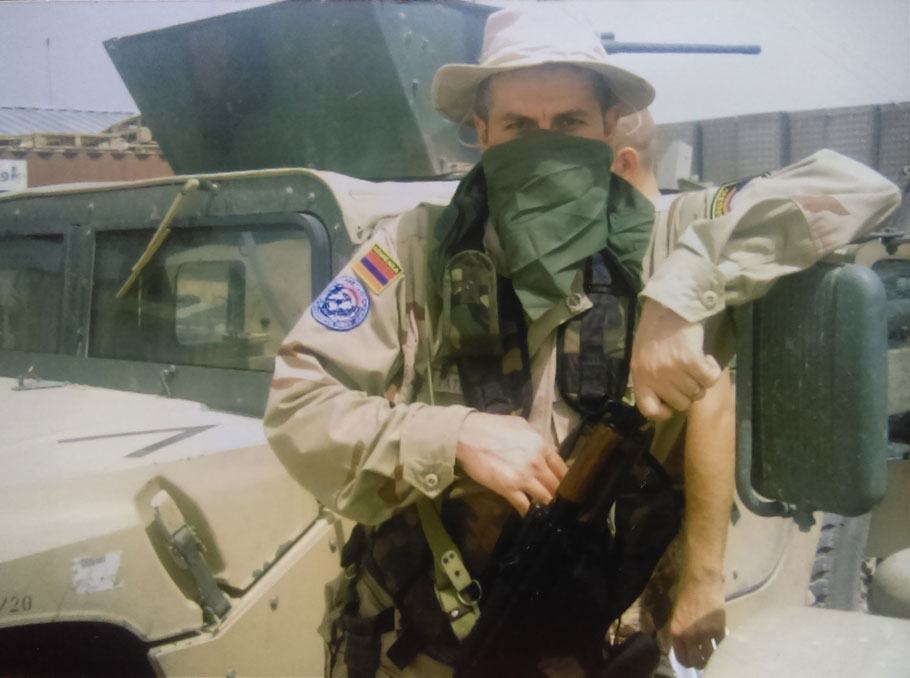 Vigen Tatintsyan
Vigen Tatintsyan Photo: personal archive
“Wherever I served, I had to build up an aid post. I never arrived to a fully functioning service. The peacekeeping was my drive too. I felt like I was nobody without military service. Since it is a peacekeeping brigade, we have to train like soldiers and be prepared for various tasks.”
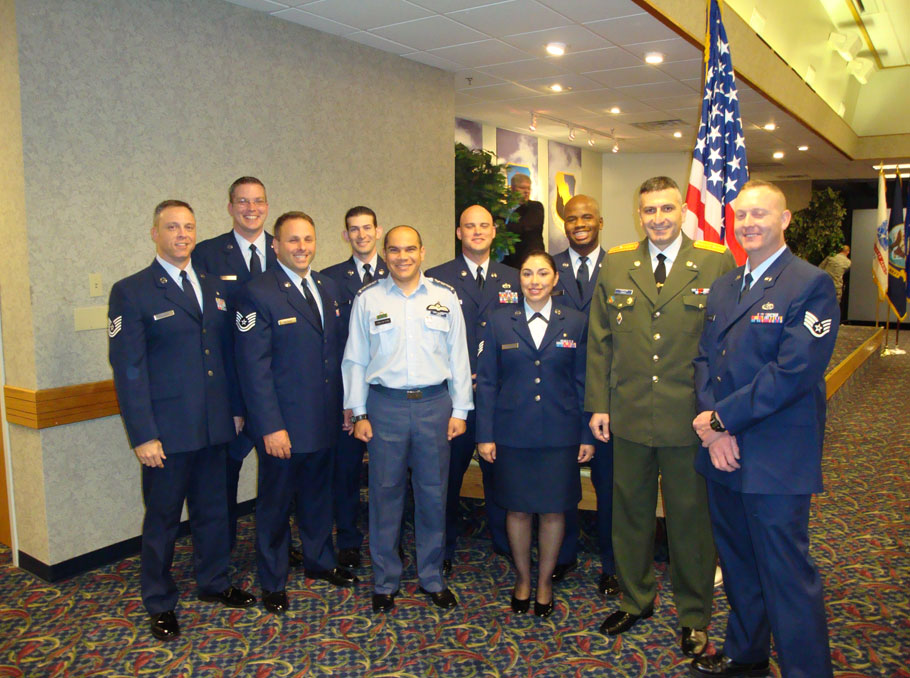 Vigen Tatintsyan during the U.S. air defense exercise
Vigen Tatintsyan during the U.S. air defense exercisePhoto: personal archive
“Special forces officers retrained us before we left to Iraq. We had to learn to shoot from any weapon and any position, lay and fire mines, practice mountaineering. After versatile training, our 40-men group went to Iraq in 2005. We served in South Baghdad, in the area under the command of Polish peacekeepers.”
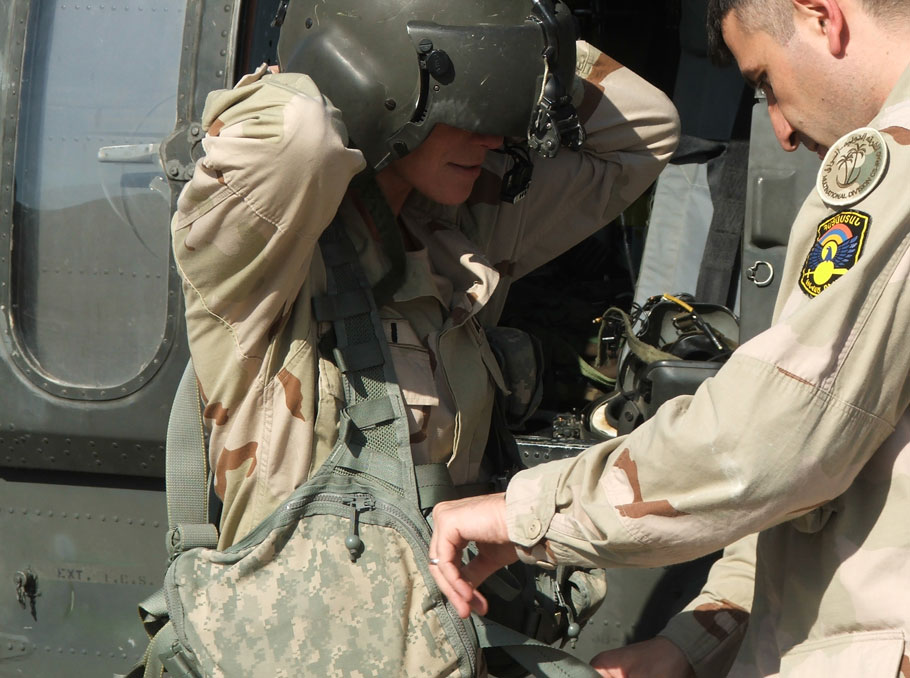 Vigen Tatintsyan in Iraq
Vigen Tatintsyan in Iraq Photo: personal archive
Return to Iraq: A wounded Armenian officer and his tireless fight for life
“One of our officers, Zhora Nalbandyan got a mine blast injury in an attack during our second mission in November of 2006. A number of soldiers got injured back then. My duty was accomplished and I passed it to the military doctor from one of the friendly countries. I had no idea that our serviceman was wounded when we were informed about the attack. The doctor on duty refused to go and help, explaining he was not allowed to. I tried to persuade him, but it was all in vain, so I put on my uniform and ballistic vest again and departed to help Zhora.
When mine blasting was over, they tried to attack again and kill the survivors, but our servicemen were able to resist.
On the scene, I found the deceased, the injured, and blood everywhere... I noticed a heavily wounded black serviceman with an Armenian flag on the uniform. I thought to myself, “Why is he wearing our uniform?” I took him out and saw he wasn’t black. His face and hair were burnt by the blast.”
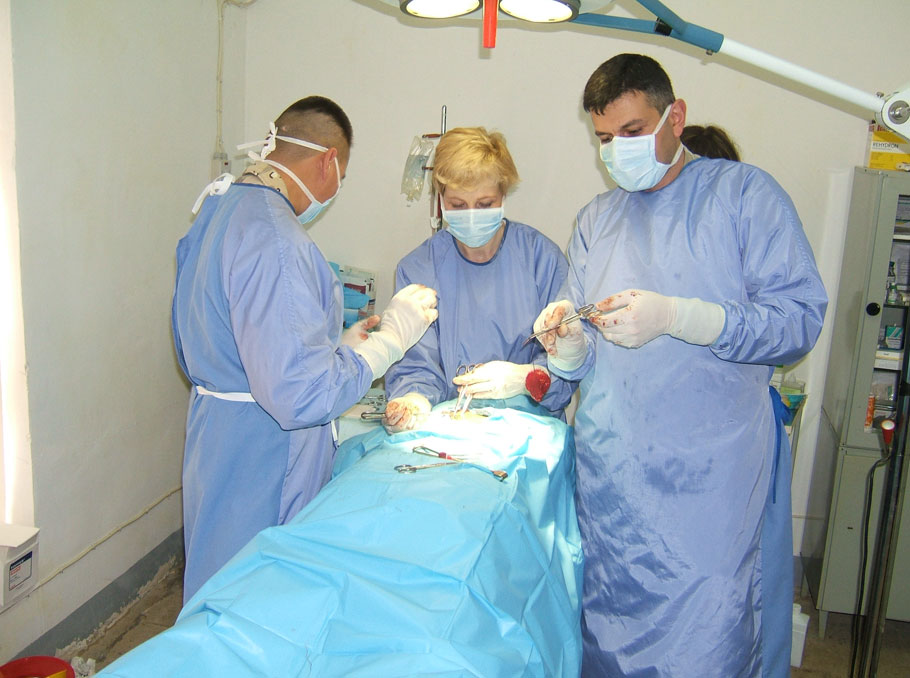 Vigen Tatintsyan in Iraq
Vigen Tatintsyan in IraqPhoto: personal archive
“Zhora opened his eyes and caught hold of me, saying: “Vigen, I want to live.”
We had a paramedic in the crew, nicknamed Lucky. Suddenly I noticed him getting nervous and weak. I told him that there were only two of us, so he had to help me.
We quickly moved Zhora to the aid post of our base, where we were joined by the doctor who refused to come for help earlier. We fought for Zhora’s life the whole night. I had a good friend in the neighboring American detachment, so I called him. Mike came on a Black Hawk helicopter for medical evacuation. I told him that we had only 30 minutes to move Zhora to the operating room, but Mike said that the flight would take 45 minutes. I explained to him that it was impossible, or we would lose Zhora. Mike left the established route and moved towards the risky undiscovered zone. Zhora was in the operating room in 30 minutes. After providing him with the necessary help, we sent him to Germany for further treatment. I was awarded Medal of Vazgen Sargsyan for my actions. Zhora got married, he has children now. He serves at the Ministry of Defense of Armenia.”
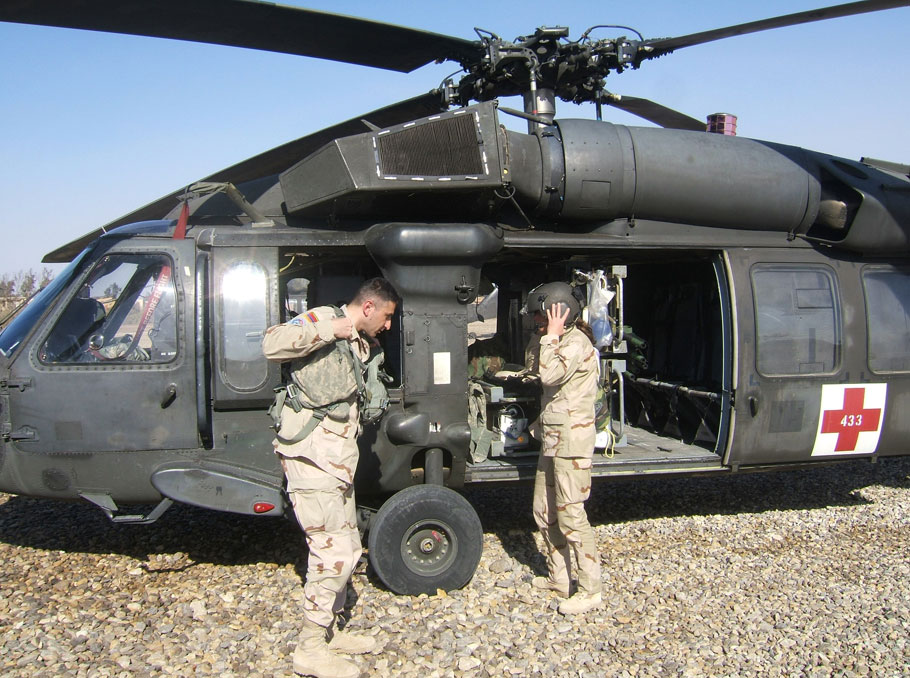 Vigen Tatintsyan near Black Hawk helicopter
Vigen Tatintsyan near Black Hawk helicopter Photo: personal archive
“I had a tough yet interesting service. Once we collected humanitarian aid and gave it to the local Arabs. When their sheikhs came to get the help I told them that I was doing it not just as a serviceman, but as an Armenian man, grateful to all those Arabs who helped and saved our compatriots during the Armenian Genocide.”
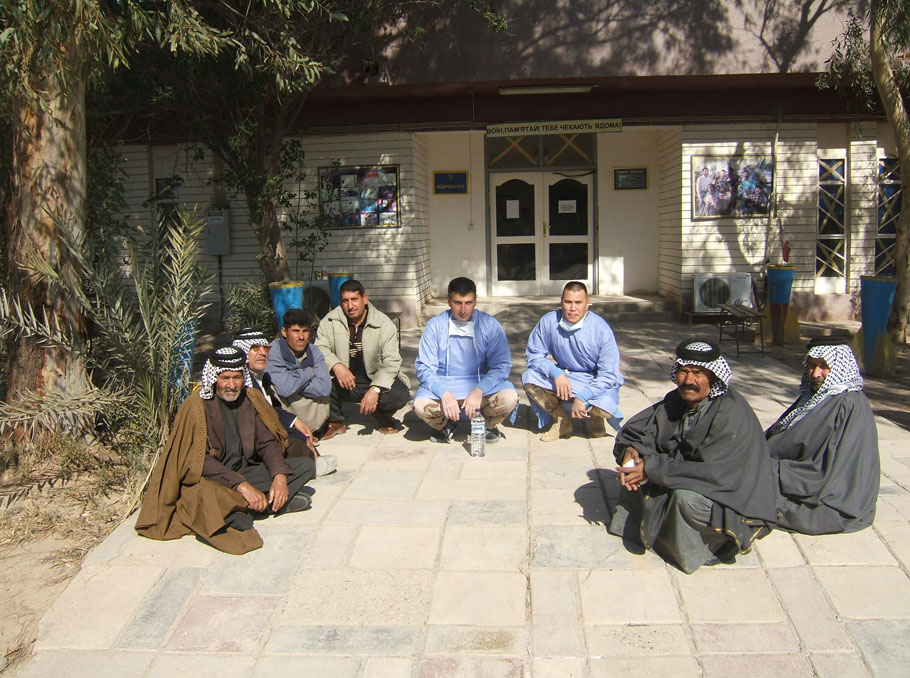 Vigen Tatintsyan with Arab sheikhs
Vigen Tatintsyan with Arab sheikhs Photo: personal archive
“I came back in 2007 to continue my service in peacekeeping forces. Then I moved to Military Medical Department of Armenian Defense Ministry and served as senior officer responsible for inpatient and outpatient care.”
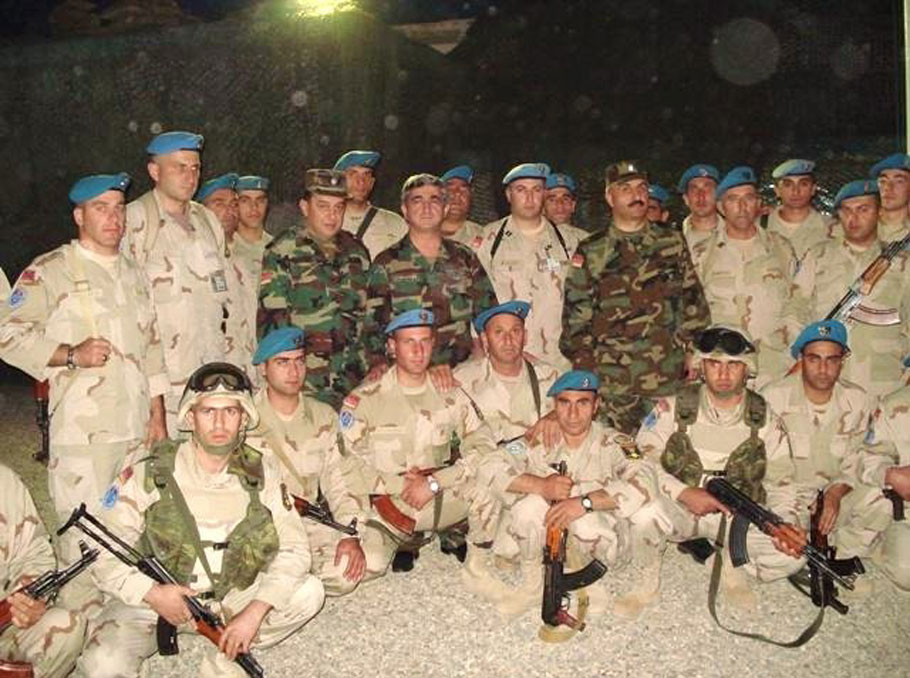 Vigen Tatintsyan with President of Armenia
Vigen Tatintsyan with President of ArmeniaPhoto: personal archive
“I realized I couldn’t work in an office. I knew I was supposed to be with the army, on the battlefield. I don’t like offices, those corridors…”
The work in Amulsar
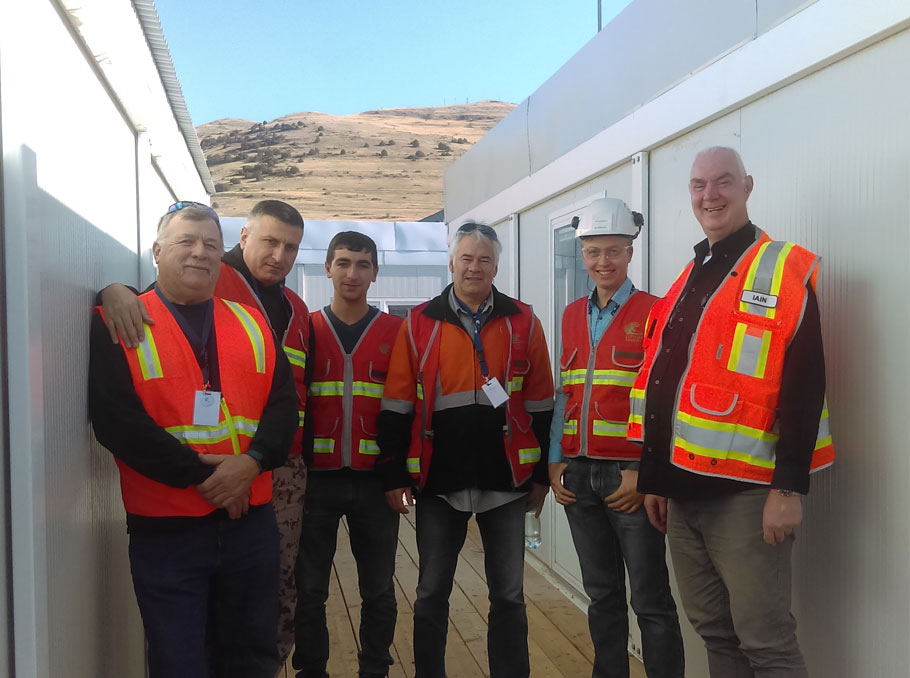 Vigen Tatintsyan in Amulsar
Vigen Tatintsyan in AmulsarPhoto: personal archive
I joined Lydian Armenia in September 2016, I coordinate the company’s medical service. It is a very important position, because a number of people work in risky conditions and they may need help at any moment. Everything should be well organized, with safety secured and possible risks taken into account. Medical service should be provided by professional personnel with quality equipment. Practical medical services in Amulsar are implemented by Armenian-Canadian company, while it is always necessary to have an experienced organizer of medical services from strategic point of view.
After the implementation of necessary preliminary work, we were able to improve the company’s medical services. I underwent training in the United States and Germany.
The conditions necessary for operation of mines and provision of medical services to miners at work are similar to those during the military service. The only difference is the absence of fire and mine blasts; all the rest is just the same: risk of injuries, injuries, the number of heavy equipment, people working in mountainous zones.”
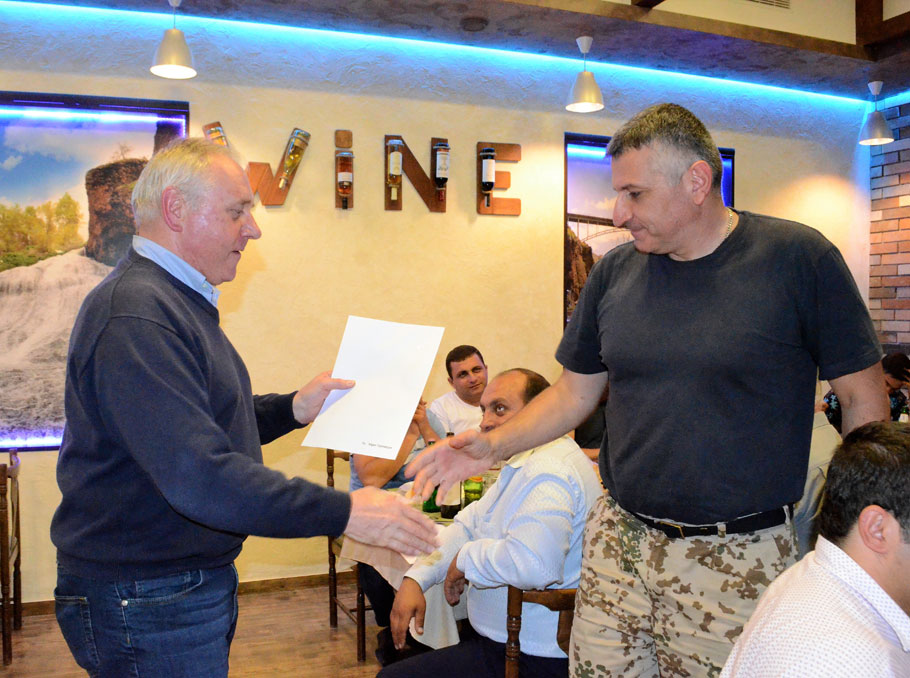 Vigen Tatintsyan
Vigen Tatintsyan Photo: personal archive
“Lydian Armenia has recently modernized the medical center in Vayk. This medical center holds strategic importance, as it will not only offer improved healthcare services for local people and miners of Amulsar, but it also provides medical help to people serving in the army.”
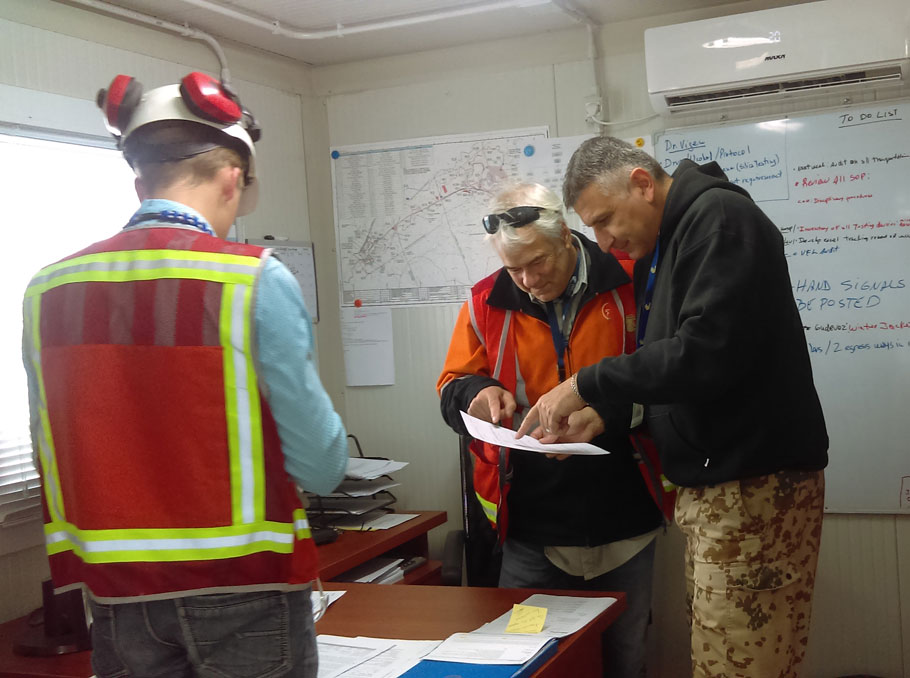 Vigen Tatintsyan in Amulsar
Vigen Tatintsyan in AmulsarPhoto: personal archive
“Lydian Armenia created a pleasant atmosphere, which allows people to love their work at the company. They show a constructive approach and appreciate their specialists, being always ready to listen to them. If you are a professional in your sector and contribute to the main goal, you are always welcomed, listened to and appreciated. A number of young people full of energy work here.
I feel great at Lydian Armenia and Amulsar, and I will probably work here until I decide to return to the army again. Although I’m already “old” for that mission, I’m still ready to defend our homeland.”
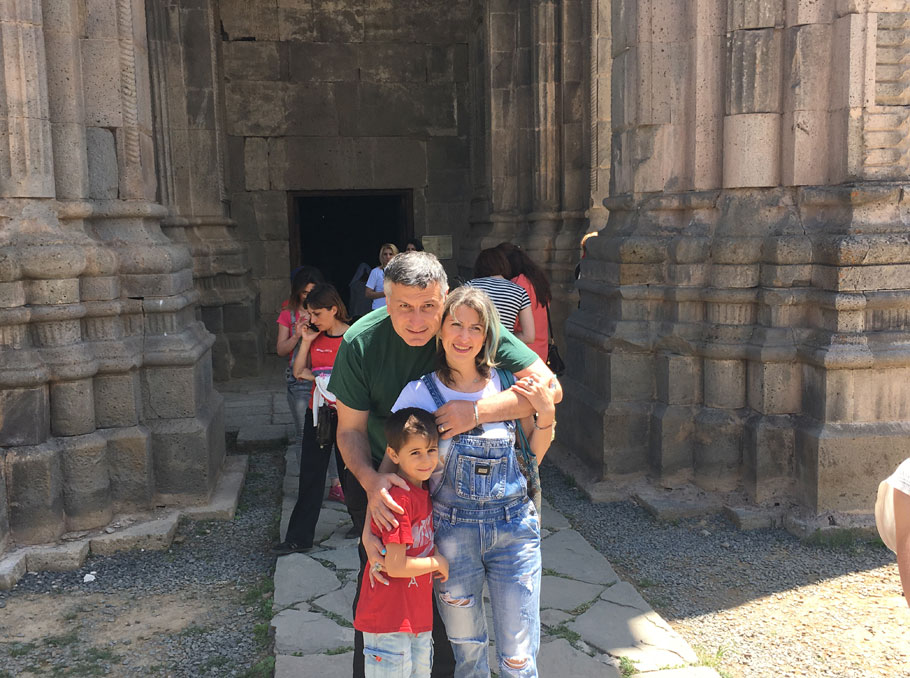 Vigen Tatintsyan with his wife and younger son
Vigen Tatintsyan with his wife and younger son Photo: personal archive
Family and important values
“I’m married and I have two sons. I often notice that my elder son is attached to the military uniform.
I served in peacekeeping forces with my wife Hasmik. We married in 2003. Hasmik served in the Army for 12 years, now she works as a pharmacy manager at a civilian hospital.”
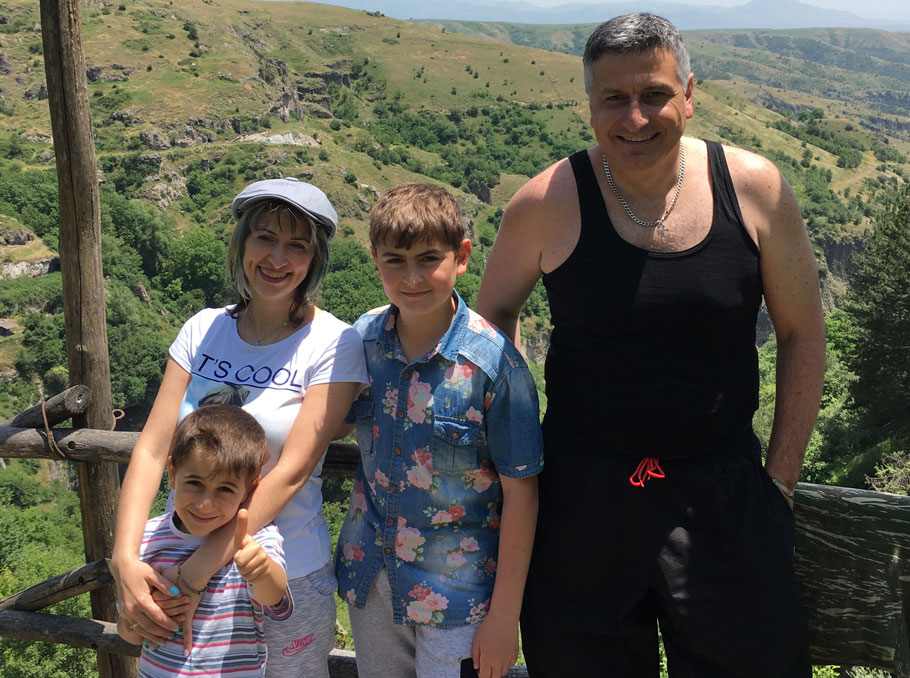 Vigen Tatintsyan with his family
Vigen Tatintsyan with his family Photo: personal archive
“My wife is a taciturn, modest and perceptive woman. She is a great person: loyal, honest and easy-going. I’m not an angel and living with me may be difficult sometimes. I have a number of negative traits, but she tolerates me.
Kindness is the most important virtue for me. You need to be generous and forgiving. If you are evil or full of envy, you won’t be able to achieve anything in your life. Our nation is smart and talented, but sometimes we forget about the generosity and good will.”
Marie Taryan














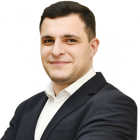

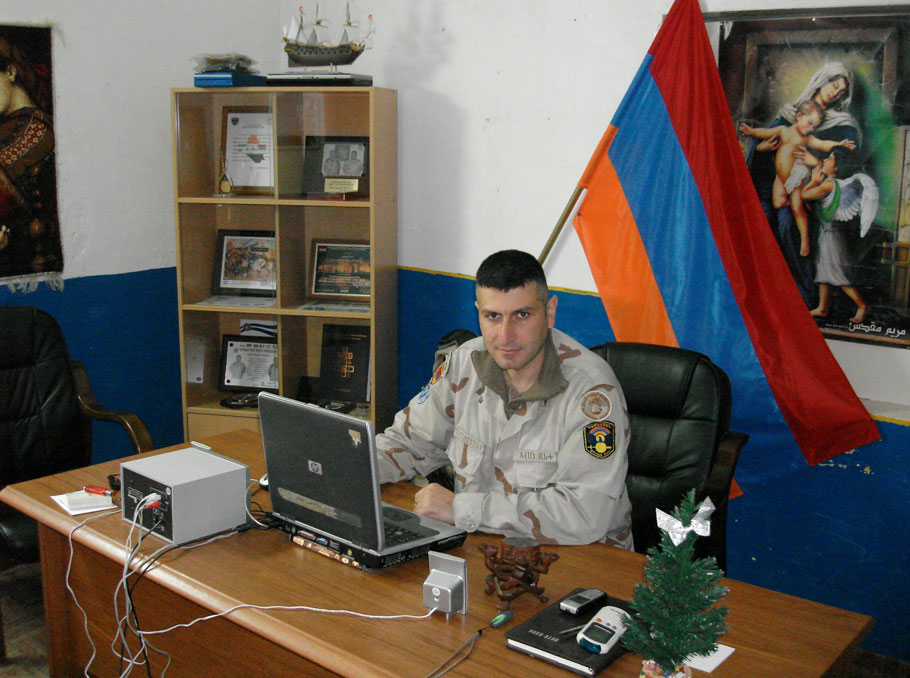

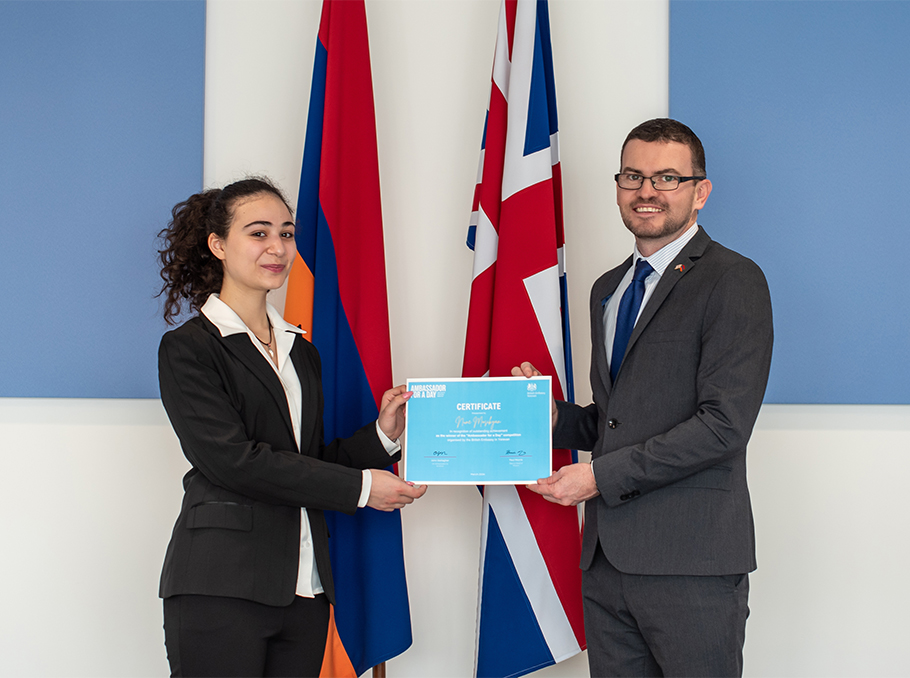
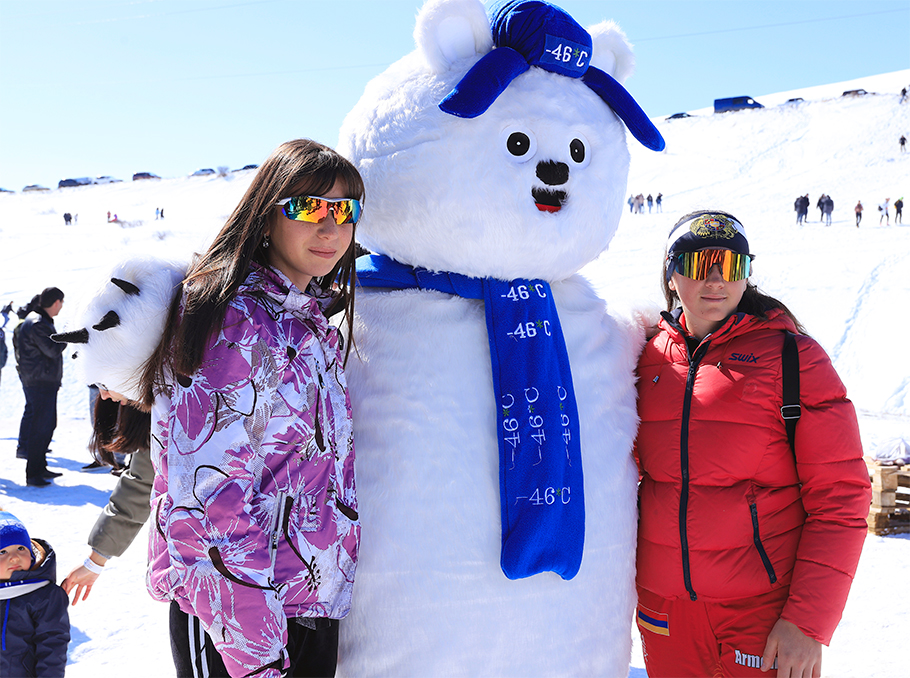
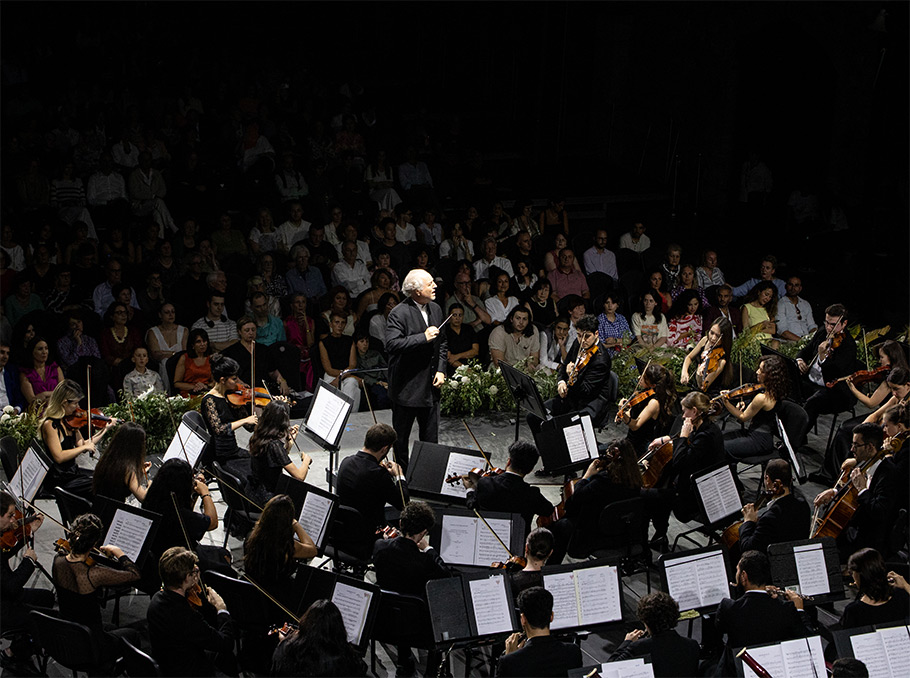
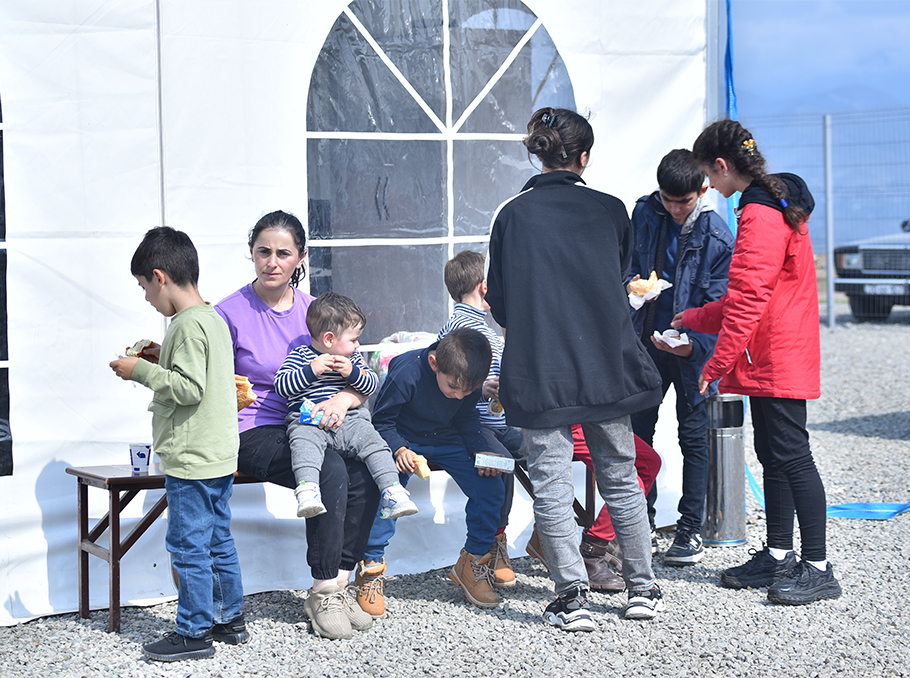
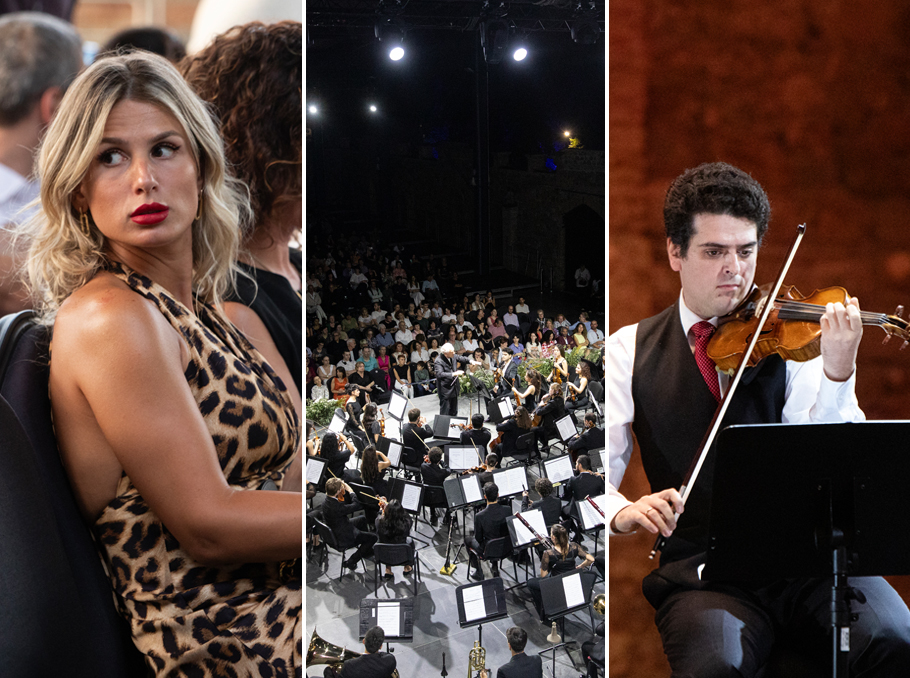





Comments
Dear visitors, You can place your opinion on the material using your Facebook account. Please, be polite and follow our simple rules: you are not allowed to make off - topic comments, place advertisements, use abusive and filthy language. The editorial staff reserves the right to moderate and delete comments in case of breach of the rules.